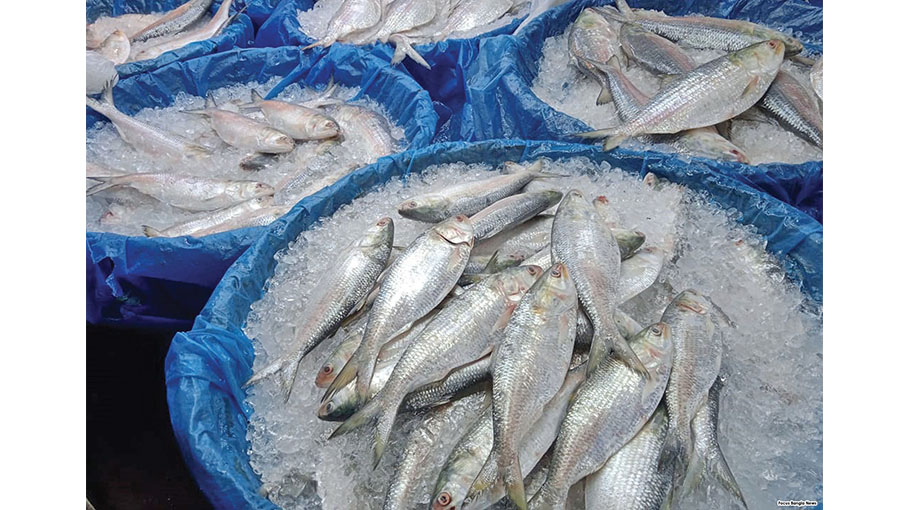22-day ban on hilsa fishing begins

A 22-day ban on catching, selling and transporting Hilsha fish began in the country from Saturday midnight. The ban would continue till
November 03.
The government has imposed the ban on Hilsha fishing to ensure the safe spawning of the national fish of Bangladesh during its peak breeding period.
On September 22, the government announced to impose the 22-day ban on Hilsa fishing from October 12 midnight.
District Fisheries Officer (DFO) of Cox’s Bazar Badruzzaman said that the ban on catching, selling, and transporting all fish, including Hilsa in the sea and estuary will take effect from midnight on Saturday to November 3. Anyone who will violate the ban will be raided by mobile courts and fined.
This 22-day annual ban has been in place for several years to protect Hilsa during its critical breeding period.
To assist fishermen affected by the ban, the government will distribute 25 kg of rice under the vulnerable group feeding (VGF) programme. However, fishermen are voicing concerns about financial hardships during this period, as many rely on daily income from fishing to support their families.
District Fisheries Officer (DFO) of Manikganj Md Saifur Rahman said the ban would continue 22 days till November 03. Mother Hilsha Conservation Campaign is being conducted through all three upazilas of the district, he added.
The government is providing VGF food assistance to the fishermen who will refrain from catching hilsa during the period," the DFO said.
The government has allocated 200 metric tons of rice under the VGF programme for distribution to 8000 fisherman families of three upazilas- Harirampur, Shibalaya and Daulatpur for their food assistance.
The DFO said the distribution of rice will be conducted among the recipients through the concerned Union Parishad Chairman. He added that each of the listed fisherman families will get 25 kg of rice under the VGF program.
Hilsa, the national fish of Bangladesh, is recognised as a certified patented product of Bangladesh. The marine fish flies to rivers in Bangladesh to lay eggs.
The fish is very popular both in Bangladesh and West Bengal in India.
The sources said, "Chandpur is considered one of the largest trading hubs of hilsa in Bangladesh as the fish from the Padma river is much more popular than the ones that come from other rivers because of its extremely pleasing taste."




